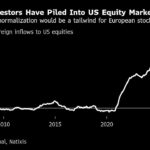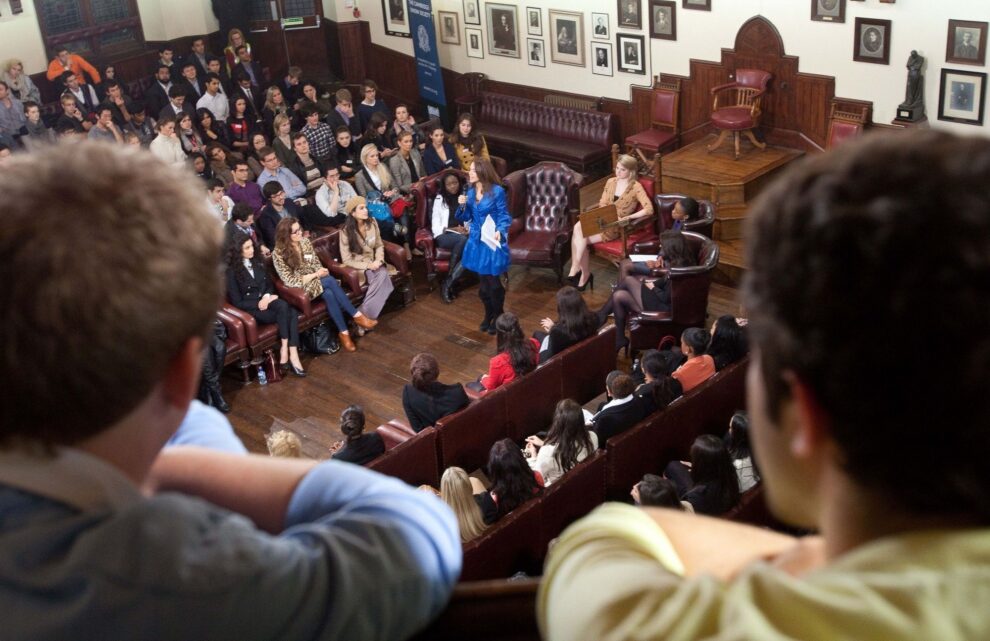
(Bloomberg Opinion) — Boris Johnson isn’t the same as Donald Trump, Brexit isn’t “Make America Great Again,” Britain’s racial problems aren’t of the same order as those of the U.S., and the desire to fight a “culture war” is restricted to a minority of ideologically committed voters on the right and left in the U.K.
Inevitably, parallels between the two countries’ political cultures present themselves. But differences matter as much as the similarities.
A recent opinion poll by the “More in Common” think tank shows 55% of U.K. voters believe their views are centrist, while only 33% of Americans identify as politically “moderate.” In Britain 85% of voters think “climate change is an issue that concerns us all.” In the U.S. no such consensus has been reached. If the Black Lives Matter debate feels less intense on this side of the Atlantic, it’s not because the arguments carry less weight, it’s because Britons of African-Caribbean heritage comprise 3% of the population, while the equivalent U.S. figure is 14%.
The U.K. is also less ideologically divided than many other European countries, even in the Brexit era. And yet, the British media and some political debates increasingly echo the culture wars of the U.S.
First, the Brexit referendum put a rocket under identity politics. More voters now consider themselves Leave or Remain supporters than identify with traditional political parties on economics, whether Labour or Conservative. Second, social media amplifies the views of the 12% of voters who use these channels most frequently to communicate their uncompromising “progressive activist” and “backbone conservative” views. Third, whatever happens in America is soon copied over here; the bad as well as the good. Culture wars, unfortunately, are primed for export across the Atlantic.
In recent weeks, what little space in the U.K. press that hasn’t been devoted to Brexit and Covid-19 vaccines has been taken up with culture and identity controversies. Should English soccer players keep taking the knee like their American football counterparts to show respect for Black lives? Was Eton College, the world’s most famous private school, right to sack a teacher for his reactionary views of the differences between men and women that he posted on YouTube? Should Cambridge University insist that speakers “respect” the views of everybody else?
Some of these issues are fairly easily addressed, despite the media storms. Football fans shouldn’t boo players who take the knee and nor should players be forced by their clubs or colleagues to make the gesture. Even prominent right-wing Old Etonians think the teacher with chauvinist views was in breach of his employment contract when he refused to take down his video.
But the broader debate around freedom of speech, as exemplified by the Cambridge kerfuffle, is of far greater consequence — and less easily dealt with. American universities have been roiled by fierce debates about identity politics. While the U.K. is nowhere near as bad, neither is it immune.
“No platform for fascists” was the slogan of student radicals in the Thatcherite 1980s intent on excluding right-wing speakers from campus and college. Violence on campus wasn’t unknown then. These schisms were real. In most British universities today, arguments about “snowflakes” and “wokery” concern only a minority of students and are conducted peaceably. Today, it’s the well-meaning but nervous university authorities who are likely to overreact and close down debate.
The challenge to free speech has spread far enough that Cambridge faculty members felt impelled to vote on the matter, overwhelmingly backing free expression in a vote last week.
The roots lie in a transatlantic row (of course). Eight months ago Jordan Peterson, a controversial Canadian psychology professor, was offered a visiting fellowship by Cambridge. Peterson’s views about the importance of male self-esteem and his disdain for political correctness have made him many enemies. Students protested at this appointment and the university authorities withdrew the offer.
Many faculty members with unfashionable views became alarmed that it might be their turn next. The academic authorities repented their decision and drew up a policy to uphold freedom of speech. The new code of conduct would simultaneously uphold “robust and challenging” debate, “free speech within the law” and a demand that speakers should be “free to express themselves without fear of disrespect or discrimination” and be “respectful of the diverse identities of others.”
Unfortunately, this new code merely heightened the alarm with its suggestions that speakers must “respect” the views of others, no matter what those might be. The university had inadvertently devised a charter for censorship. At Oxford University, Cambridge’s ancient rival, it is acknowledged that not all theories deserve equal respect.
More than a hundred academics mounted a rebellion against the wording of the code, spearheaded by Arif Ahmed, a philosopher. He put forward an amendment that the word “respect” should be replaced with “tolerance.” Why, for instance, should theists and atheists respect each other’s views? Skeptics like Voltaire and David Hume and believers like CS Lewis and GK Chesterton would fall foul of that edict.
In a vote of academics last week, the rebel amendments were passed by an overwhelming majority. Roger Mosey, master of Selwyn College, told me the vote reflects the moderation of faculty and the student body alike: “Students are mostly sensible and much less politicized than in my (80s) generation.” He says the 87% majority was a convincing endorsement of academic freedom.
The U.K.’s university system is rated the best in the world after that of the U.S. in most rankings. The Ivy league is more richly endowed, but a reputation for tolerance will increase the attraction of British colleges in the competition for talent.
Whether we like arguments that oppose us, or their bearers, the spirit of John Henry Newman, author of the classic 19th century work on academia “The Idea of a University,” deserves to be upheld. “Quarry the granite rock with razors, or moor the vessel with a thread of silk; then may you hope with such keen and delicate instruments as human knowledge and human reason to contend against those giants, the passion and the pride of man.”
Passion and pride have their place. But debarring voices from the conversation on behalf of others is always an error, whether the row occurs in Cambridge Mass. or Cambridge, East Anglia.
This column does not necessarily reflect the opinion of the editorial board or Bloomberg LP and its owners.
Martin Ivens was editor of the Sunday Times from 2013 to 2020 and was formerly its chief political commentator. He is a director of the Times Newspapers board.
For more articles like this, please visit us at bloomberg.com/opinion
Subscribe now to stay ahead with the most trusted business news source.
©2020 Bloomberg L.P.






